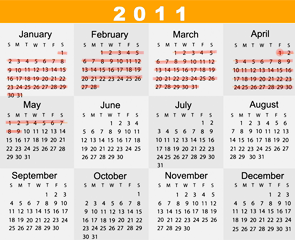Weekly Mileage and Race Performance
Runners are always looking for an edge – to get faster, to run farther, to stay injury free.
I can preach to you about the importance of nutrition, or staying hydrated, or even the kind of shoes you wear. But I believe the single biggest predictor of race day performance – behind pacing strategy – is the number of miles you run per week in a given training program.
…really, each person has his or her own magic number
You want to run your best marathon? Well, 25 miles a week isn’t gonna do it. And likewise, if you are training for a race of a much shorter distance, you probably don’t need a calendar full of 20-mile Saturdays to achieve your best 5K or 10K.
So how do you determine how much mileage is right for you? The answer depends on a couple of things: what race you are training for; and how experienced of a runner you are.
What are you running
From Hal Higdon to Jack Daniels to the publishers at Runners World, there are tons experts who can give you advice on how many miles you should log each week. And really, each person has his or her own magic number. A 100-mile week for someone like Ryan Hall will not work for most of us 30- and 40-something weekend warriors who have jobs and families.
So I like to base my weekly mileage on what races I have upcoming. Let’s take the marathon distance. In the leadup to this race most of us throw in anywhere from two to five 20-plus mile runs during a typical 16-week training schedule. And these 20-mile runs come at the end of our peak weeks during marathon training.
But we know we can’t rest for six days and then run a 20-miler on the seventh. Just like we need to run 20-milers to help us prepare for the marathon, we need to run a certain amount of mileage during the week to prepare us for our 20-miler – or whatever the long run for that week is.
And so what we need is a base to support our long runs. And there is a general rule of thumb that goes like this: Your long run should be no more than 30 to 35 percent of your total weekly mileage. And the lower that percentage, the better. If you run 5 days a week, and four of your runs total 20 miles, you’ll need to run half of your mileage in one day to get in a 20-miler.
So if you are running 40 miles a week, your long run should probably be no more than 14 miles. To get in a 20-miler during marathon training, your weekly mileage total needs to climb into the high 50s. (Just to be clear: I don’t mean that you need to run in the high 50s before your long run. In these calculations, your total mileage includes your long run.) In this scenario, someone training for a marathon would ideally have weeks that range from 40 to 60 miles. (A quick aside: My best times for many of my races have come following weeks of high mileage. My best 5K (19:08) came while I was doing 50-mile weeks preparing for the 2009 Dallas White Rock Marathon.)
Of course, not every race is a marathon, and so you don’t need as much miles for shorter distances. I think if you are training for a half marathon, your long run needn’t be much more than the distance of the race itself. And so a half-marathon training program that peaks at 40 weeks might be adequate for most folks, though personally, when I’m not training for a longer race, injured or taking a break from running, I keep the logbook at 35 to 40 miles a week year-round.
This kind of mileage has worked for me, and yet I know lots of people who’ve had faster races on much less mileage. The key is to run enough mileage where you feel comfortable going into a race, but not too much where you are tired before a workout or even unable to complete one.
How experienced you are
The more miles you run – injury free, the better a race performance you are likely to have. But you can’t go from running 15 miles a week to 70 miles a week overnight because you’ll just set yourself up for injuries.
Most experts agree that you should not increase your weekly mileage by more than 10 percent. So, if you are at 30 miles a week, your next week shouldn’t be much more than 33 to 35 miles. During this increase in mileage, you should hold at that figure for two weeks to let your body adapt, then maybe cut your mileage by 25 percent before increasing another 10 percent.
For example, you are running 25 miles a week. You increase 10 percent to 28 miles (rounded up from 27.5) and stay at 28 miles for two weeks, then you can cut back one week to 20 miles to give your body a rest and let it make the adaptations before increasing another 10 percent to 31 miles a week. And whatever you do, do not increase your speed during the same time you are increasing your weekly mileage. Doing this just invites disaster in the form of injuries or sore bones and muscles.
Veteran marathon runners know the limits to their bodies and can go from weeks in mid 20s mileage to mid 40s, though the smart runners still increase their weekly mileage slowly and with care.
The key is to listen to your body and if you need a rest day, by all means, take one, or even two.



